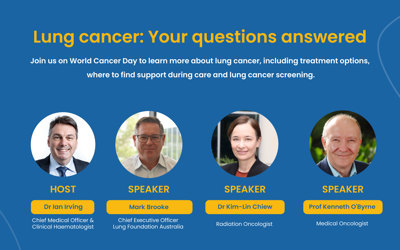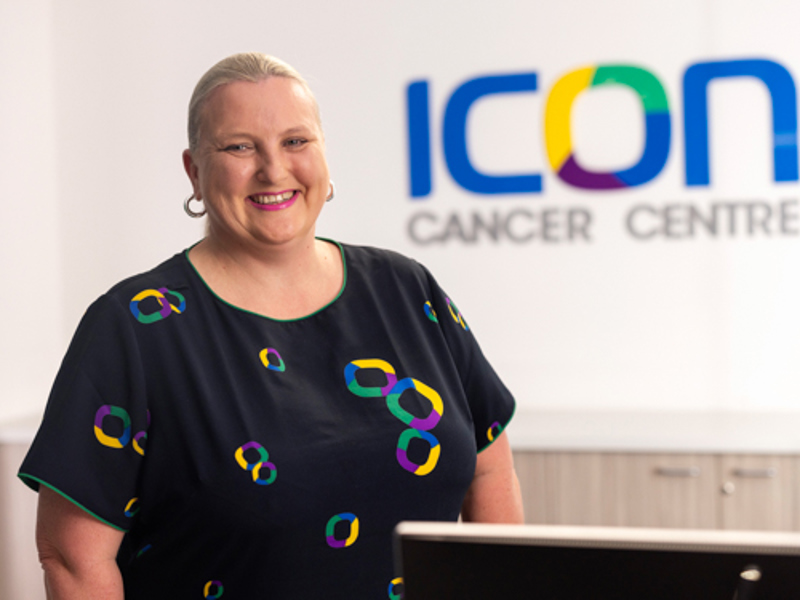
Icon Cancer Centre Facebook Live: Lung Cancer
There are many different types of cancers. Every cancer, regardless of the type, begins in your genes.
Whether you are at risk of cancer will depend on a variety of factors, some which you can control, and others which you cannot.
Cancers start when harmful genetic changes called mutations randomly occur in the genes within one or a few of the cells in our body.
These changes affect how the cells grow and divide and as a result, they grow in an abnormal or uncontrolled way.
A single mutation will not commonly cause cancer. A cancer is more likely to occur from multiple gene mutations that may occur over a period of time.
Cancer can occur at any age. However as we grow older, there is a higher likelihood of more mutations occurring in our cells. There is also more likely to be a higher exposure to the agents that cause cancer happening over time as we age.
In Australia, around one in three men and one in four women will be diagnosed with cancer by the age of 75. One in two people will be diagnosed with cancer by the age of 85 years.1
These are substances that are known to trigger the genetic mutations that cause cancer. Carcinogens do not always cause cancer in every person. There are many factors that determine whether a person who has been exposed to a carcinogen will get cancer.
Some examples of known carcinogens are the chemicals in tobacco smoke and asbestos and exposure to ultraviolet radiation. Some carcinogenic substances only cause cancer depending on what type of exposure or how much exposure a person has had to them.
Approximately 5 -10% of cancers are hereditary.3
Hereditary cancer occurs when damaged or faulty genes are present in the reproductive cells (sperm and egg cells) which are subsequently passed down from parents to children.
People in families who carry these mutated genes will not always get cancer, but their risk of developing cancer during their lifetime is higher than average.
Some hereditary cancers are strongly linked with a specific gene, for example the BRCA1 and BRCA2 genes are known to be linked to the development of hereditary breast and ovarian cancers.
Certain viruses, bacteria and parasites can cause cancers. An example is the Human Papilloma Virus (HPV) which is a common cause of cervical cancer.
If you have a question about becoming a patient at one of centres or accessing our treatment services, we are here to help. We know that navigating a cancer diagnosis can be overwhelming, and can help you understand the process and what steps to take next.

The content on the Icon Cancer Centre website is for informational purposes only and should not be considered medical advice. It is not a substitute for consultation with a qualified medical practitioner. For personalised medical guidance, please consult with your GP or another qualified healthcare provider.

Discover our comprehensive collection of content designed to inform, support, and guide you through every aspect of cancer care. From the latest news and updates to personal patient experiences and educational resources, these materials provide valuable insights to help you better understand cancer, treatment options, and the journey ahead.